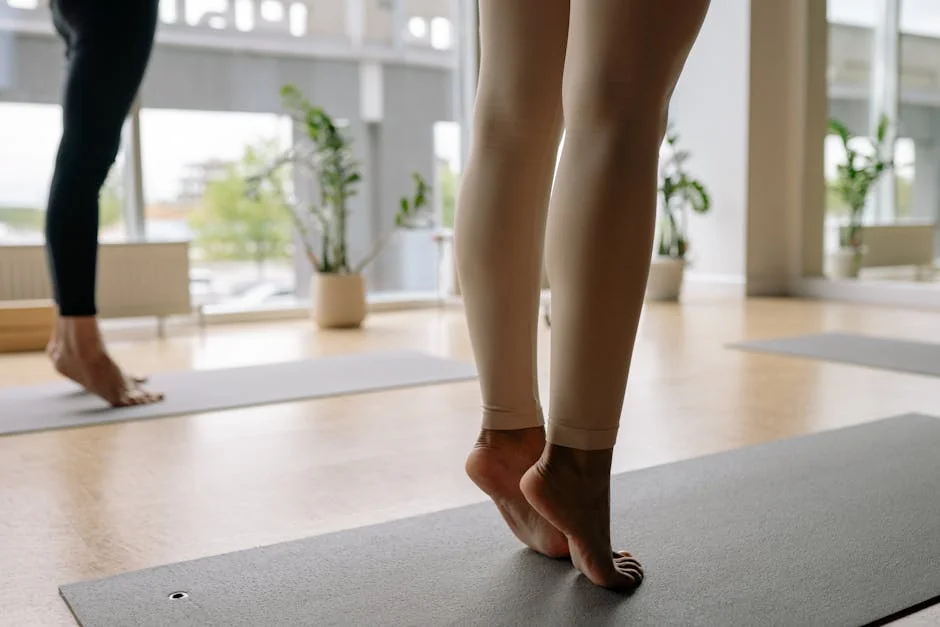Feeling like your brain is a browser with too many tabs open? You’re not alone. In our non-stop world, stress and anxiety have become unwelcome constants, leaving many of us searching for a way to hit the pause button. What if the key to quieting the noise wasn't another app or a complicated solution, but a practice as simple as paying attention? A growing body of scientific research is pointing to a powerful answer. In fact, mindfulness meditation has been found to reduce a host of these modern ailments, offering a science-backed path to greater calm and control.
This isn't just spiritual speculation; it's a proven tool for rewiring our response to life's challenges. In this comprehensive guide, we'll move beyond the buzzwords and dive into the specific, evidence-based benefits. We will explore exactly how this accessible practice can dial down chronic stress, soothe anxious thoughts, and even change your relationship with physical pain. Get ready to discover how cultivating a present-moment awareness can transform your well-being from the inside out. Let's begin by uncovering the mechanics behind its profound impact.
How Mindfulness Meditation Has Been Found to Reduce Chronic Stress
Chronic stress puts your body's alarm system—the fight-or-flight response—on constant high alert. Mindfulness meditation works by directly counteracting this. By focusing your attention on the present moment, typically using the anchor of your breath, you train your brain to step out of the cycle of worry about the future or regret about the past.
Studies using brain scans show that regular practice can shrink the amygdala, the brain's fear center, while strengthening the prefrontal cortex, which is responsible for rational thought and emotional regulation. This neural remodeling means you become less reactive to stressors.
The physiological benefits are just as clear:
- It lowers cortisol levels, the primary stress hormone.
- It can reduce blood pressure and heart rate.
- It helps quiet the default mode network, the brain network linked to mind-wandering and self-referential thoughts that often fuel stress.
Easing the Mind: The Impact on Anxiety and Repetitive Thoughts
Anxiety often thrives on a loop of "what if" scenarios and repetitive, negative thoughts—a process known as rumination. Mindfulness introduces a powerful pause in this cycle. Instead of getting swept away by anxious thoughts, you learn to observe them with curiosity and without immediate judgment. This is a core skill you can develop with foundational steps to meditation.
This shift in perspective is transformative. You begin to see thoughts as passing mental events rather than absolute truths. This practice, often called cognitive defusion, creates space between you and your anxiety, reducing its intensity and grip. You realize you are not your thoughts; you are the observer of them. This fundamental change can significantly reduce symptoms of generalized anxiety, social anxiety, and panic disorders. For many, this process is the essence of using meditation to clear the mind.
Beyond the Mind: Reducing the Perception of Physical Pain
The benefits of mindfulness aren't confined to psychological states. Research has consistently shown that it can alter how the brain processes pain. While the physical sensation of pain may not disappear, your relationship to it changes. Mindfulness teaches you to observe the physical sensations of pain—the heat, tightness, or throbbing—without the layer of emotional suffering, resistance, and catastrophic thinking that usually amplifies it. A powerful technique for developing this awareness is the how to do body scan meditation practice, which guides you to tune into bodily sensations without judgment.
By breaking the "pain-suffering" chain, you can experience a notable reduction in the overall perception of pain. This makes mindfulness a valuable complementary practice for managing chronic pain conditions like lower back pain, arthritis, and migraines.
Cultivating Emotional Balance and Reducing Reactivity
How often do you react impulsively to a trigger, only to regret it later? Mindfulness builds what is often called the "pause button" for your emotions. By becoming more aware of your inner landscape—the early physical signs of anger, the tightening of sadness—you gain a critical moment of choice before you speak or act.
This doesn't mean suppressing emotions. It means acknowledging them fully without being hijacked by them. Over time, this practice cultivates emotional intelligence and resilience. You respond to life's ups and downs with greater clarity and balance, rather than being a victim of your own emotional storms.
Getting Started: A Simple Guide to Your First Mindfulness Session
You don't need special equipment or hours of free time to begin. Here is a simple, foundational practice to get you started today.
- Find a Quiet Space: Sit comfortably on a chair or cushion with your back straight but not rigid.
- Set a Time: Start with just 5 minutes. Use a gentle timer.
- Focus on Your Breath: Close your eyes or lower your gaze. Bring your attention to the physical sensation of your breath—the air moving in and out of your nostrils, or the rise and fall of your chest or belly.
- Gently Guide Your Attention: Your mind will wander. This is completely normal and not a sign of failure. The moment you notice your mind has drifted, gently and kindly guide your attention back to your breath. This act of noticing and returning is the core of the practice.
- Expand Your Awareness: After a few minutes with the breath, slowly expand your awareness to include sounds, bodily sensations, and thoughts. Simply notice them, let them be, and return to your anchor.
Conclusion: Building a Sustainable Practice for Long-Term Benefits
The evidence is clear: mindfulness meditation is a powerful, accessible tool for reducing stress, anxiety, pain, and emotional reactivity. The key to unlocking these science-backed benefits lies not in perfection, but in consistent, gentle practice. By returning to the present moment again and again, you train your brain for greater peace and resilience. Start small, be patient with yourself, and discover how this ancient practice can transform your modern life. To explore the full scope of what's possible, delve into the extensive mindfulness meditation practices have been shown to improve.
In summary, the evidence is compelling: mindfulness meditation is a powerful, accessible tool for mitigating the pervasive stresses of modern life. The practice offers a proven pathway to reduce not only anxiety and depressive rumination but also the physiological toll of chronic stress, leading to improved emotional regulation and a greater sense of overall well-being. By dedicating mere minutes each day to anchoring our awareness in the present moment, we can fundamentally reshape our relationship with our thoughts and feelings. This is not about eliminating life's challenges, but about changing how we respond to them, fostering a resilience that permeates every aspect of our daily existence. The journey toward a calmer, more focused mind begins with a single, intentional breath. We encourage you to embrace this practice with patience and curiosity, discovering for yourself the profound peace that lies within simply pausing and paying attention.



